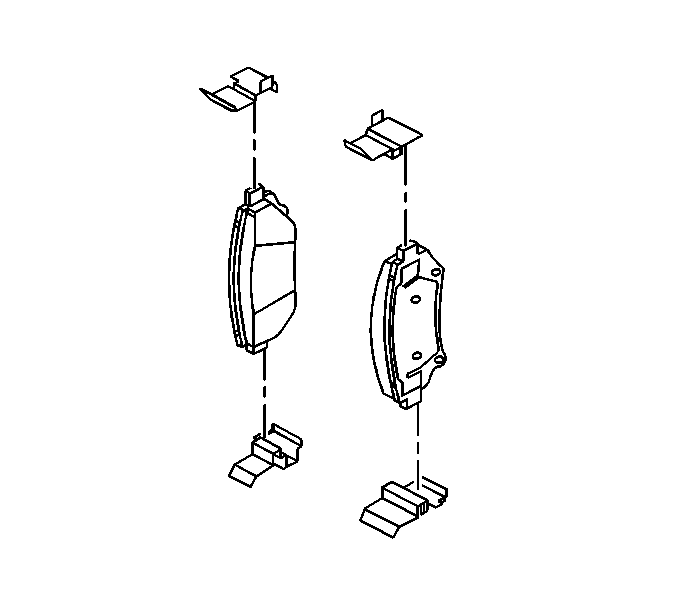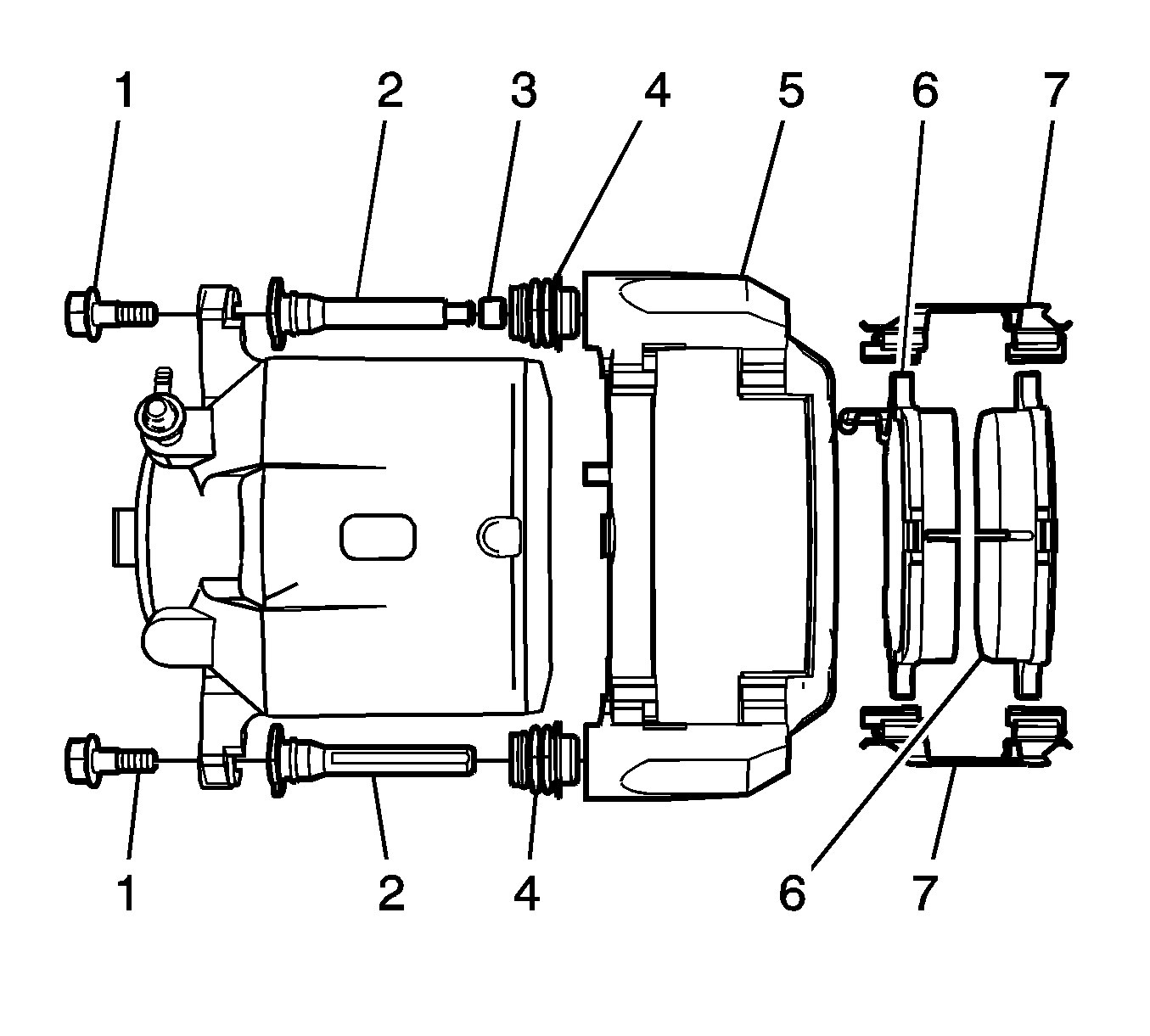Caution: Refer to Brake Dust Caution in the Preface section.
- Inspect the fluid level in the brake master cylinder reservoir.
- If the brake fluid level is midway between the maximum-full point and the minimum allowable level, no brake fluid needs to be removed from the reservoir before proceeding.
- If the brake fluid level is higher than midway between the maximum-full point and the minimum allowable level, remove brake fluid to the midway point before proceeding.
- Install a large C-clamp, over the body of the brake caliper with the C-clamp ends against the rear of the caliper body and against the outer brake pad.
- Tighten the C-clamp until the caliper piston is compressed into the caliper bore enough to allow the caliper to slide past the brake rotor.
- Remove the C-clamp from the caliper.
- Grasp the brake caliper and try to move the brake caliper up or down. The brake caliper should not have excessive looseness.
- Grasp the brake caliper and try to move the brake caliper in and out . The brake caliper should slide smoothly with minimal force.

- Inspect the brake caliper retainers.
- Inspect the disc brake pad mounting hardware for the following:
| • | Looseness at the brake caliper mounting bracket |
| • | Looseness at the disc brake pads |
| • | Missing mounting hardware |
- If any of the conditions listed are found, the disc brake pad mounting hardware requires replacement.
- Ensure the disc brake pads are held firmly in place on the brake caliper mounting bracket, yet slide easily on the mounting hardware without binding.

- Inspect the brake caliper bolts (1) for the following:
| • | Bent or damaged brake caliper bolts (1) |
| • | Bent, damaged or looseness in the brake caliper mounting bracket (5) |
- If any of the conditions listed are found, the brake caliper mounting hardware requires replacement.


